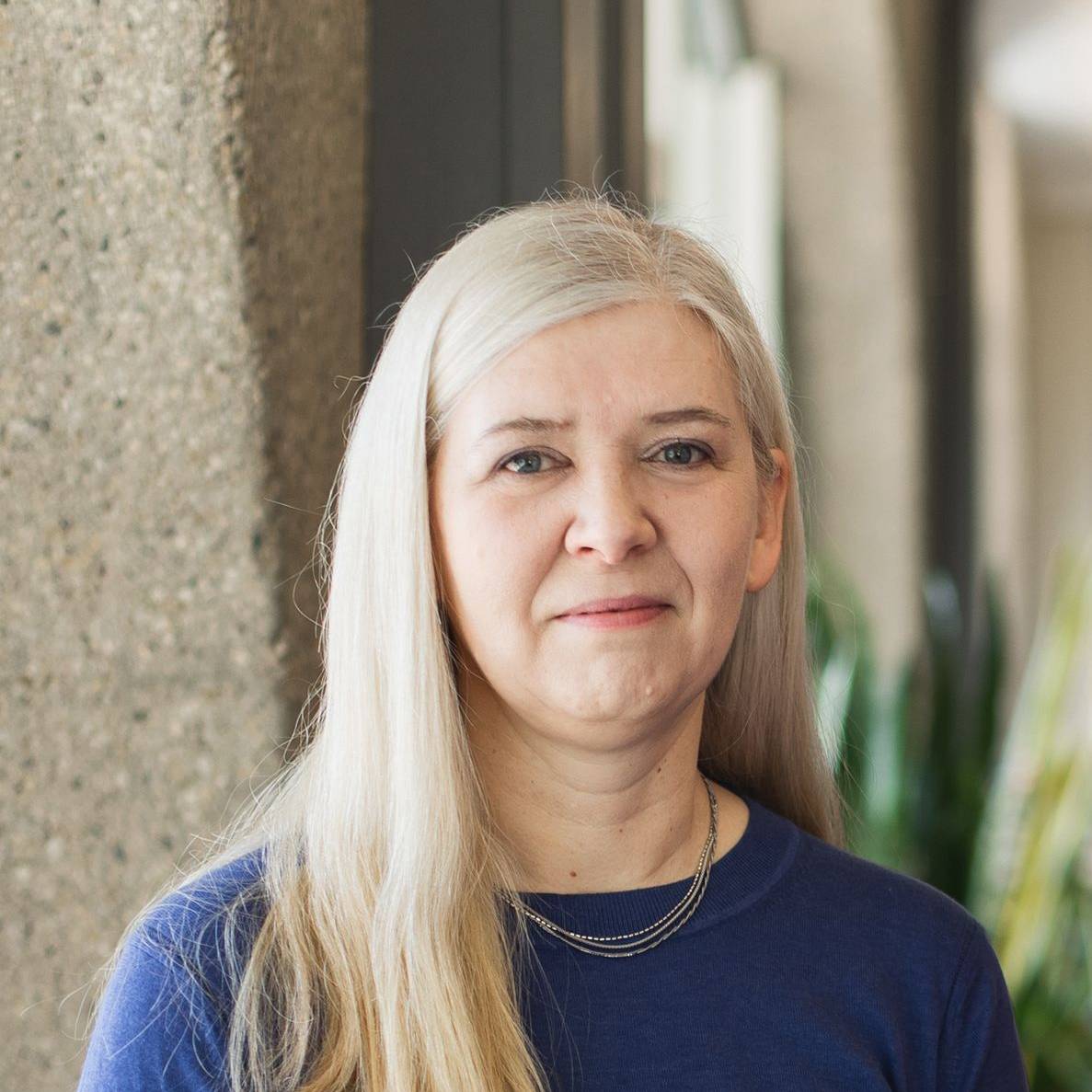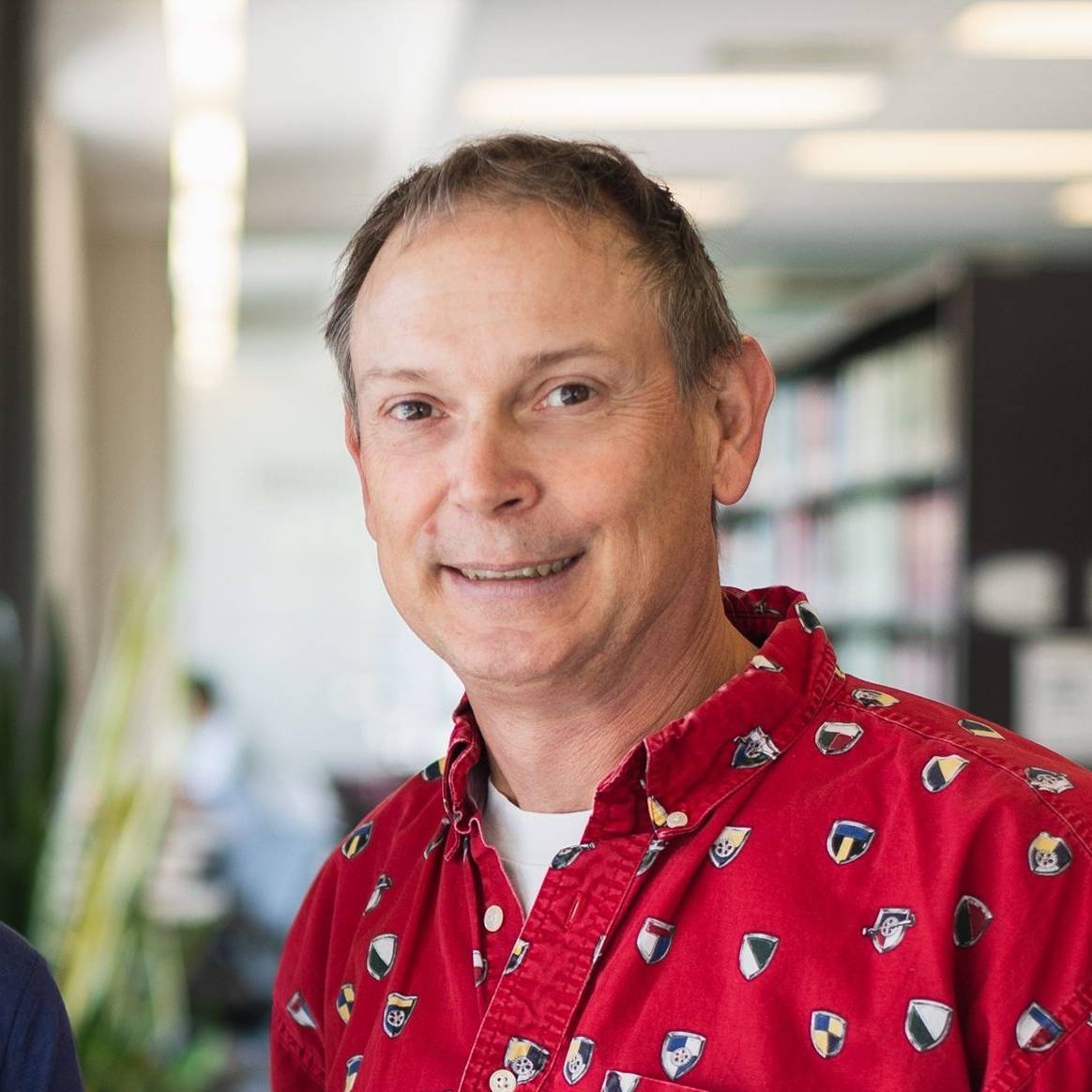GROWING AS A LEADING ORGANIZATION
TODAY’S RESEARCH LIBRARY
Serving a diverse campus community of students, researchers and instructors, today’s research library requires expertise and support in a variety of areas, way beyond simply finding books and journals for readers and researchers. Learn more about some of the specialists working behind the scenes to make the Library a valuable partner to all within the campus community.

Agnes Zientarska-Kayko,
liaison librarian

Tim Ireland,
liaison librarian
AGNES ZIENTARSKA-KAYKO AND TIM IRELAND, LIAISON LIBRARIANS, INFORMATION SERVICES & RESOURCES
Our librarians work closely with students, researchers and instructors across campus, providing support and expertise in navigating the complex information landscape. As technology changes, our librarians are always learning about new tools so they can best support users.
A few years ago, liaison librarians Tim Ireland and Agnes Zientarska-Kayko received a request to provide instruction on citation management software Zotero. At the time this wasn’t software the Library actively supported. However, always curious to learn, they started to investigate Zotero and quickly realized how user-friendly and collaborative it is, making it an ideal platform to support the work of scholars and researchers.
Since then, Ireland and Zientarska-Kayko, alongside their Library colleagues, have hosted dozens of workshops across campus. “People at all levels of experience (including us) are leaving the workshops having learned something about Zotero. The workshops are tailored to the needs of the group and become a collaborative, knowledge-sharing experience that benefits us all,” say Ireland and Zientarska-Kayko.
Given the success of the workshops, the library now provides access to Zotero institutional storage and continues to host customized workshops for research groups, faculties and classes.

Jermal Jones, Associate Director, Equity, Diversity, Inclusion and Access (EDIA)
JERMAL JONES, ASSOCIATE DIRECTOR, EQUITY, DIVERSITY, INCLUSION AND ACCESS (EDIA)
Over the last year, the Library has continued to commit to our EDIA goals in a variety of ways. First, the EDIA associate director role was made permanent, allowing Jermal Jones to expand his plans for the portfolio. This included transitioning the Library’s EDIA Working Group into a formal Committee to solidify this work on an ongoing basis. Initiatives this year included hosting a soup lunch with the Waterloo Indigenous Student Centre (WISC) and a virtual tour of the Mohawk Institute.
Jones was also able to expand his “Conversations of Care” training with library staff, covering such topics as microaggressions and allyship and bystander intervention. A case study of this program has been accepted for publication in the Association of College & Research’s (ACRL) forthcoming A Guide to Inclusive Library Leadership to share learnings from this experience and provide insight to others doing this work in library spaces.
The Library’s partnership with Print & Retail Solutions to bring Anti-Racism Reads to campus has continued this year, including a free book program to reduce barriers to participation. Jones also instituted additional touch points, both before and after the formal events: “It’s been really exciting to experience a deepening in conversation over the last year with Anti-Racism Reads, with opportunities to continue the conversation both online and in person, with midway check-ins and post-event follow-ups after particularly engaging discussions.”
As ever, this work does not happen in isolation; the Library was able to support larger EDIA efforts happening at UWaterloo, particularly through the support of the Sankofa Book Drive, which saw dozens of books donated to Uganda’s Sankofa Pan-African Library.

Kari Weaver, learning, teaching and instructional design librarian

Antonio Muñoz Gómez, digital scholarship librarian
KARI WEAVER, LEARNING, TEACHING AND INSTRUCTIONAL DESIGN LIBRARIAN, AND ANTONIO MUÑOZ GÓMEZ, DIGITAL SCHOLARSHIP LIBRARIAN
With the rise of ChatGPT, the University of Waterloo Keep Learning team, of which the Library is a core member, began exploring the topic of artificial intelligence (AI) and its potential impacts on learning and education. In response, they formed a broader, cross-campus working group that identified initial tangible actions that could be taken to support students, instructors and researchers.
The Library’s Instructional Design team and Digital Scholarship librarian took on the challenge of creating a citation guide for ChatGPT and generative AI. With insight from librarians and UX specialists, Weaver and Muñoz Gómez launched the initial guide early in 2023. “As one of the first resources of its kind, it has seen consistent usage and widespread support on campus and beyond. Many faculty members have included a link to the guide in their course syllabi, which helps support students in navigating these new tools with high academic integrity,” say Weaver and Muñoz Gómez.
As the technology and how it’s used continues to grow and change, the guide will also evolve; even within its first year, the guide has been updated and expanded to include additional resources relating to generative AI and relevant research being done at Waterloo.